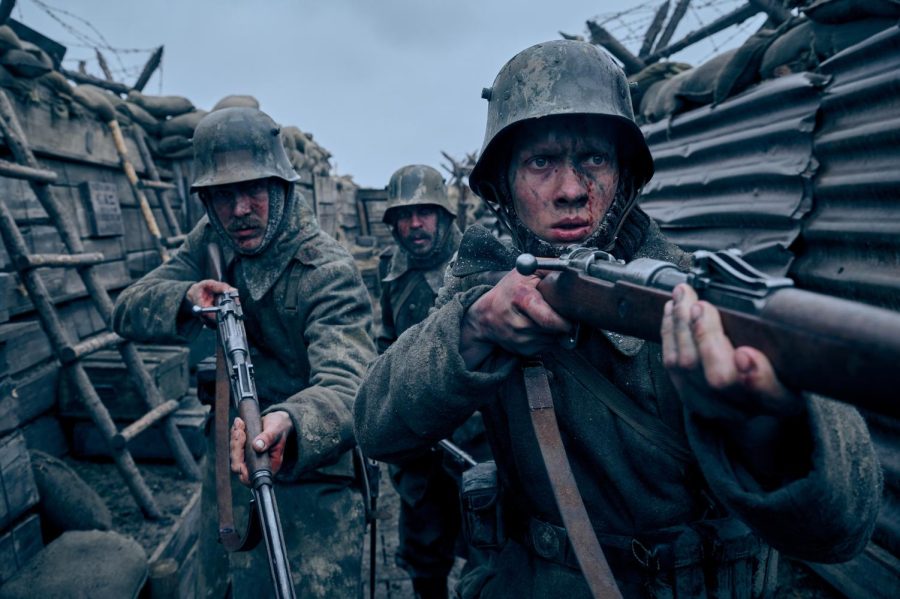Netflix’s ‘All Quiet On the Western Front’ delves into age-old anti-war themes, delivers stunning special effects
November 9, 2022
Netflix’s highly anticipated reimagining of “All Quiet On the Western Front” released on Oct. 28 to critical acclaim. Based on the seminal anti-war novel by Erich Maria Remarque, the film follows the journey of Paul Bäumer, an idealistic German teenager who eagerly enlists to fight in World War I. The indiscriminate carnage of trench warfare forces Paul to confront the moral implications of war and the dangers of blind devotion to one’s country.
Films like Steven Spielberg’s “Saving Private Ryan” and Sam Mendes’ “1917” often receive credit for setting the standard for modern war films, with their sprawling battle scenes and a renewed focus on the experiences of individual soldiers. “All Quiet On the Western Front” delivers on the lasting legacies established by its predecessors. The film’s masterful blend of CGI and practical effects allows audiences to immerse themselves in the maelstrom of trench warfare while never losing sight of Paul’s journey. Not wasting any instances of gratuitous violence, nearly every battle scene propels Paul’s growing disillusionment with the war.
Felix Kammerer’s ability to emulate the youthful inexperience of an idealistic patriot allows Paul to capture the audience’s sympathies. Paul clamors to get to the western front and establish himself as a worthy soldier of the German empire. Adorned with flowers and singing German folk songs, his company cheers when told they would be shipping out to the front lines. Kammerer’s performance oscillates from youth’s naivety to the coarseness of a battle-hardened soldier. At times, his portrayal of Paul resembles that of Aleksey Kravchenko’s in “Come and See,” who boasts one of the best acting performances in an anti-war film.
“All Quiet On the Western Front” does not attempt to elude its source material’s anti-war themes. However, where Remarque’s book succeeded in showing rather than telling readers of the senselessness of World War I, the film iteration fails. Proving heavy-handed in its deliverance of anti-war themes, the film remains predominantly situated in the trenches and battlefields. In the novel, quiet moments away from the front drive the plot and highlight Paul’s loss of innocence, arguably creating a more heart-wrenching sense of melancholy than any battle scene could. The film remains an undeniably poignant rebuke of war yet fails to be as subtle as its source material.
Bolstered by Kammerer’s performance and the film’s special effects, “All Quiet On the Western Front” serves as a powerful meditation on the implications of modern warfare on the human psyche. Though the film’s delivery fails to convey a story as nuanced as the novel, the overarching themes highlighting the precarity of the human situation when thrust into the throes of war remains as poignant as ever.
4 historical fiction adaptations out of 5















